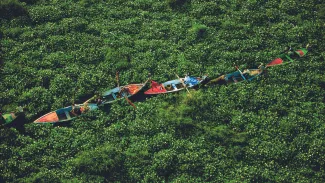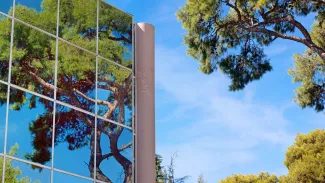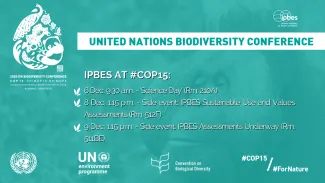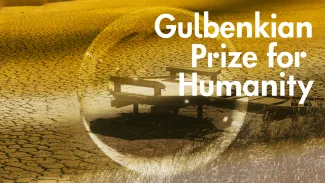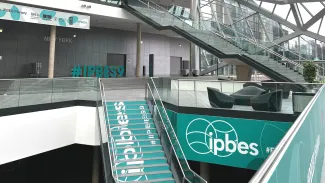
IPBES Statement to SBSTTA-22 on Future Work Programme
Statement by Dr Anne Larigauderie, Executive Secretary of IPBES, on 4 July 2018 to the Plenary of the 22nd meeting of the Subsidiary Body on Scientific, Technical and Technological Advice (SBSTTA-22) of the Convention on Biological Diversity (CBD) in Montreal, Canada regarding Item 12 of the SBSTTA-22 Agenda (Second work programme of IPBES)
As we just heard from the secretariat and as described in document SBSTTA/22/11, IPBES is currently preparing its future work programme, following up on its first work programme for the period 2014-2018.
This first work programme will culminate with the release of the global assessment of biodiversity and ecosystem services, currently open for review, at the 7th Plenary session of IPBES in May 2019.
It is envisaged that the future IPBES work programme would cover the next decade up to 2030, and that it would support efforts to implement:
- The post-2020 biodiversity framework;
- The 2030 Agenda for Sustainable Development, including the Sustainable Development Goals, and
- The Paris Agreement on Climate Change
The future work programme would be of a “rolling” nature which means that not all of its elements would be decided at the beginning, but that there would be a staggered process to determine elements, such as new themes throughout the course of the coming decade.
Current work on the future work programme is articulated around two streams of work, which together will form the future work programme:
The first stream is the draft strategic framework.
Discussions in this context focus on processes, based on lessons learnt, including:
- How to implement the four functions of IPBES;
- How to better integrate work across the 4 functions;
- What kind of institutional arrangements to put in place?
- How to strengthen resource mobilization (to cite a few examples).
Written input on this draft strategic framework was provided by Governments and others and IPBES convened a meeting of all its national focal points on 4-6 June in Bonn to further discuss these issues.
The second stream of work relates to potential topics to be addressed in future IPBES reports and activities.
IPBES will be issuing, in the next few weeks, a call for topics to be addressed by IPBES, for both short term priorities and longer-term needs.
The call will invite members of IPBES, observers that are allowed enhanced participation, and multilateral environmental agreements related to biodiversity and ecosystem services to submit requests.
In addition, inputs and suggestions from United Nations bodies related to biodiversity and ecosystem services will also be welcome.
Finally, inputs and suggestions will also be encouraged from relevant stakeholders, such as other intergovernmental organizations, international and regional scientific organizations, environment trust funds, non-governmental organizations, indigenous peoples and local communities and the private sector.
Deadline for responses to this call for short term priorities and longer-term needs will be 30 September 2018, but multilateral environmental agreements will have the opportunity for late submissions of requests to take their specific schedules into account.
To conclude, IPBES looks forward to receiving requests later this year from COP14 in order to provide in particular the scientific basis to take into account the role of biodiversity in addressing the SDGs.
This would support coherent policy making across SDGs, which considers synergies and trade-offs across SDGs, such as between biodiversity, energy, climate change, food, water, and health in order to achieve the 2050 vision for biodiversity and the 2030 Agenda for Sustainable Development.
Thank you.
